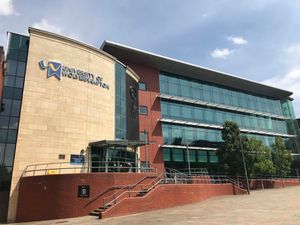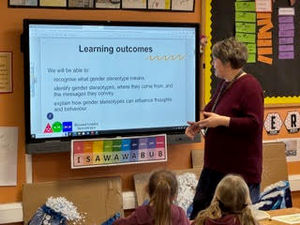Blog: The classroom of the future
On Good Friday, I was asked to link up, through Skype, with a conference taking place in India writes Professor Kit Field.

On Good Friday, I was asked to link up, through Skype, with a conference taking place in India writes Professor Kit Field.
I was asked to comment on how I saw the 'classroom of the future' Below is an adapted excerpt of my presentation, which serves as a summary of the issues raised. I hope you find it interesting!
My own work around the world has shown me how the purposes of education differ. Indeed the Latin root of the word present a dichotomy. To educate can be interpreted as a way of schooling and training the population to fulfil identified social roles – that is to train a work force, to instil political beliefs even to indoctrinate the population.
On the other hand, education can be to open up the world for people, to prepare individuals to lead and to define the personal and social parameters for themselves. For the middle classes education provides opportunities to choose and to self-determine.
I have witnessed changes in attitudes. My work in South Africa made me aware of a shift from denying large groups of people access to education, by restricting learning opportunities through a variety of means (language, facilities, funding, opportunities for progression). Post democracy, I have noted changes – education for all and outcomes based education for example)
Mauritius has moved in 50 years from a colonial state, when an English education system, including content irrelevant to Mauritians; was replaced, following independence, by an education designed to meet the needs of an agricultural economy. This was followed by a recognition that Mauritius offered touristic opportunities for people around the world. More recently Mauritius has become a focal point for financial services, and now aims to be a 'knowledge hub'.
In Britain, an education system was devised to revive the economy and rebuild an infra-structure after the second world war. Manufacturing led the way, and has since been decimated in favour of banking and finance – which through the recent crisis has been seen to have failed many in the country. If education systems are to serve society's economic needs, it must adapt continuously. The economy does not stand still!
What happens in the classroom of the future, depends on the society people want. Do we want the population to be drilled in ways of behaving which serve the perceived needs of the country, which will inevitably lead to forms of rote learning informed by behaviourist principles?
Rewards will be forthcoming for those who succeed. Financial gain will become the main motivating force, and competition will drive learners towards materialistic goals.
In India, I have seen elements of this, as the country has become a leading economic force in world terms – private schools for the middle classes, who demand an international education as opportunities for success become worldwide. On the other hand, I have witnessed a focus on the spiritual and moral benefits of education. Education can lead to empathy and understanding, civic responsibility, and personal well-being.
Community education, collaboration, social responsibility and cooperation demand very different forms of education.
The world is complex, and any classroom of the future will contain all of the above. We all want adults of the future to be employed, to be aspirational, socially mobile, disciplined, caring and concerned for their fellow human beings. Knowledge must be made available, and opportunities to use it should be presented, modelled, and young people should be able to experiment and evaluate their application of learning.




